If you have your sights set on becoming a pharmacist, then pre-pharmacy programs can help you start your college studies on the right track.

Rather than being a specific major, the pre-pharmacy field of study encompasses several different educational options. As you get ready for school, you can compare the various tracks available to decide which approach is best for you.
Editorial Listing ShortCode:
No matter which type of pre-pharmacy studies you choose, you can work toward building a solid foundation for a career in health science.
Online Pre Pharmacy Programs

Earning a Doctor of Pharmacy (PharmD) is a rigorous process that requires several years of education. You can prepare for the doctoral program during your undergraduate years.
In a pre-pharmacy undergrad program, you can develop your math and science skills so that you’re ready for the advanced learning that takes place in Doctor of Pharmacy online or on-campus programs. Before you start pre-pharmacy training, though, you’ll first decide how you want to approach it.
For the most part, pre-pharmacy isn’t an actual college major. Rather, it refers to a variety of degrees and educational tracks that can help you get ready for PharmD admission.
The primary options include:
- Bachelor’s degree in pharmaceutical science
- Bachelor’s degree in a related subject area—preferably with a pre-pharmacy emphasis
- Pre-pharmacy non-degree track
Some schools offer a bachelor’s degree that focuses on pharmaceutical topics. It might be called a Bachelor of Science in Pharmaceutical Science. If you know you want a pharmacy career, that degree program may be a good fit. It’s not the only bachelor’s degree that can lead to pharmacy work, though.
Other majors that could help prepare you for a PharmD include:
- Biology
- Biochemistry
- Chemistry
- Health Science
Some schools offer those degrees with a pre-pharmacy track or concentration that includes the necessary prerequisites for PharmD admission.
Editorial Listing ShortCode:
Before committing to one of those programs, though, you may also want to take a look at what could be a faster option: a non-degree pre-pharmacy track. That’s an arrangement in which you’ll spend only a few years enrolled in an undergraduate program.
After completing all the pharmacy prerequisites, you could advance to PharmD studies. You may be awarded your bachelor’s after 1 or 2 years in the doctoral program, and your doctorate will come later. This approach can save you time—usually about 1 year—compared to completing two separate degrees. To take advantage of this opportunity, you may be required to be conditionally preadmitted to the doctoral program.
Potential jobs in this field for pre-pharmacy graduates include:
- Pharmaceutical rep
- Lab technician
- Pharmacy technician
- Biologist
Those who finish a PharmD may go on to become medical scientists, licensed pharmacists, or pharmacy professors.
Common Majors in Prepharmacy Programs

Students who want to enroll in PharmD programs often start with accelerated pre-pharmacy tracks for their undergraduate studies.
If you’d prefer to earn a full bachelor’s degree before enrolling in pharmacy school, you might consider one of the following majors:
- Biology. As you study cells, genes, and living organisms, you can also pursue a concentration in pre-pharmacy or health professions in preparation for your doctoral program.
- Biomedical Chemistry. This program’s emphasis on biology and organic chemistry could help prepare you for your doctoral studies in pharmacokinetics and pharmacotherapy.
- Health Science. For a major in health science, you’ll study medical terminology, human anatomy, and healthcare systems. You might take some pharmacy-specific classes as well.
- Pharmaceutical Science. If you know that you want to become a pharmacist someday, then you might appreciate this major that focuses on topics like drug delivery and medicinal chemistry.
- Physics. The math that’s required for a physics degree may be useful for pharmacists, and some physics programs offer concentrations for students who want healthcare careers.
Most pharmacy schools expect certain prerequisite courses but not a particular major, so you might even earn your bachelor’s degree in a field like English or psychology.
Pharmacy Careers & Salaries
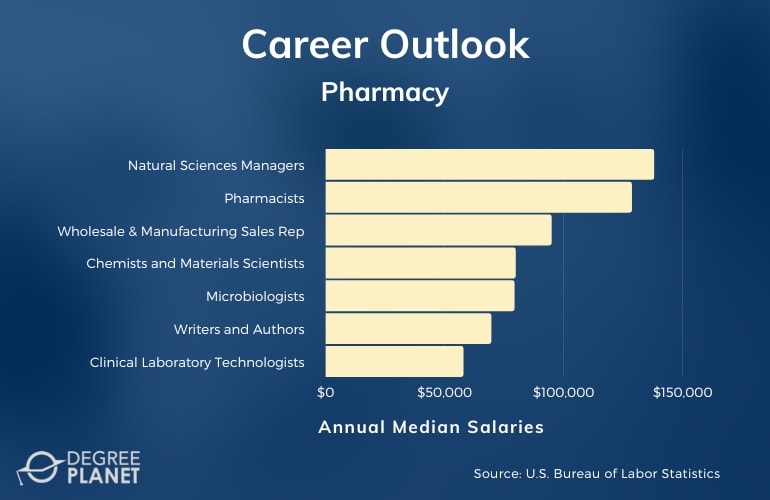
As you’re getting started in the pharmaceutical field, you might pursue work as a pharmacy technician. You can learn many of the necessary skills in a pre-pharmacy program or in an on-campus or online pharmacy technician certification program. This type of job might be fitting for you before you complete your PharmD studies.
Another role to consider is working as a laboratory technologist or technician. Your undergrad lab classes might help you develop the skills needed in a professional laboratory setting. Medical laboratory scientist is an alternative job title for this line of work.
Getting a PharmD can broaden your career opportunities. The most popular career path is to work as a pharmacist. Pharmacists often work in drugstores, other retail locations, and hospitals.
According to the Bureau of Labor Statistics, here are some potential career paths related to pharmacy studies.
| Careers | Annual Median Salaries |
| Natural Sciences Managers | $137,900 |
| Pharmacists | $128,570 |
| Wholesale and Manufacturing Sales Representatives (Technical and Scientific Products) | $94,840 |
| Chemists and Materials Scientists | $79,760 |
| Microbiologists | $79,260 |
| Writers and Authors | $69,510 |
| Clinical Laboratory Technologists and Technicians | $57,800 |
| Biological Technicians | $48,140 |
| Pharmacy Technicians | $36,740 |
| Pharmacy Aides | $29,930 |
There are additional scientific careers that could be a good fit for pre pharmacy majors. Depending on your area of research, your job category might be considered biochemistry, biophysics, biology, or medical science. Perhaps you’d study toxicology or drug discovery.
With experience, some scientists become directors or managers. In that role, you might oversee team members, provide direction for research projects, set budgets, and communicate with stakeholders. If you go on to earn your PharmD, you might also be able to teach college classes for students who are preparing to launch their own pharmaceutical careers.
Editorial Listing ShortCode:
Whether you decide to earn your PharmD or stop after bachelor’s studies, you might be qualified as a sales representative for a pharmaceutical company. You could also consider writing health-focused articles for print or online publications.
Pre Pharmacy Curriculum & Courses
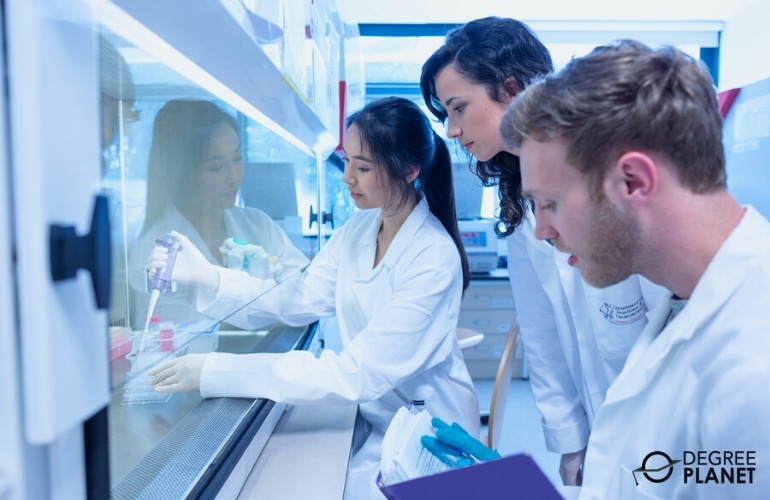
The exact classes that you take in a pre-pharmacy program will depend on what track or concentration you choose. Even still, the following list may give you an idea of what to expect from pre pharmacy schools.
- Anatomy and Physiology: You’ll learn about the parts of the human body and how the various systems work together.
- Biochemistry: As a pharmacy professional, it’s necessary to have a strong understanding of the chemical processes that go on inside living organisms, especially humans.
- Immunology: Learning about the immune system will help you understand how the body responds to disease and how pharmaceuticals can support the immune response.
- Introduction to Pharmaceutical Professions: This course teaches you about the job opportunities in pharmaceuticals and helps equip you with skills and knowledge that you’ll use throughout your schooling.
- Introductory Biology: In this lab class, you’ll study cells, genetics, ecology, and scientific research methods.
- Health Systems: There may be a class that introduces you to the various components of the US healthcare system and the policies that govern healthcare delivery.
- Healthcare Research: You might take a class about the research methods used in medical and healthcare science.
- Microbiology: You could have a biology class that’s all about the classification, function, and life cycle of microorganisms.
- Organic Chemistry: As you learn about functional groups, you’ll likely complete lab sessions to reinforce the textbook lessons.
- Physics: Even if you’re not a physics major, you’ll probably spend at least one semester studying mechanics, dynamics, and related topics.
Your curriculum may include additional science classes, or there may be more courses that focus on the principles of healthcare.
How to Choose a Pre Pharmacy Major

Enrolling in a non-degree pre-pharmacy undergraduate track might save you time in the long run, but many students prefer to get a full bachelor’s degree instead.
If that describes you, you can consider these questions to help you decide on a major:
- Am I sure I want to be a pharmacist? If so, you might consider a degree like pharmaceutical science. If not, a major like biology or health sciences may give you more career opportunities after graduation.
- How can I best meet the admissions requirements? Pharmacy schools usually require certain prerequisite courses, so it’s strategic to make sure that your undergrad program will include those studies.
- Will I need to take the PCAT? If you plan to apply to PharmD programs that require PCAT scores, then it’s beneficial to choose a major that offers a pre-pharmacy concentration. It’s most likely to include exam prep.
- Would I rather focus on science or healthcare? A science major like biochemistry or biology will give you more lab experience. Health science students often spend more time on topics like healthcare delivery and patient care.
As you make your decision, it’s helpful to remember that PharmD programs admit students from all different undergrad programs. Rather than there being a “right” option or a “wrong” option, you can simply pick the major that best matches your interests.
Pre-Pharm Admissions Requirements

Colleges may have limited spaces in their pre-pharmacy college programs. The application requirements might include:
- ACT or SAT scores (not needed at all colleges)
- Letters from personal or academic references
- Personal essay
- Transcripts from high school and any colleges
Schools may also look for minimum high school GPAs of 3.0, on average. At many schools, beginning a pre-pharmacy non-degree track requires having already been admitted to the PharmD program. Getting into a bachelor’s degree program doesn’t usually carry that requirement.
Prepharmacy Programs Accreditation
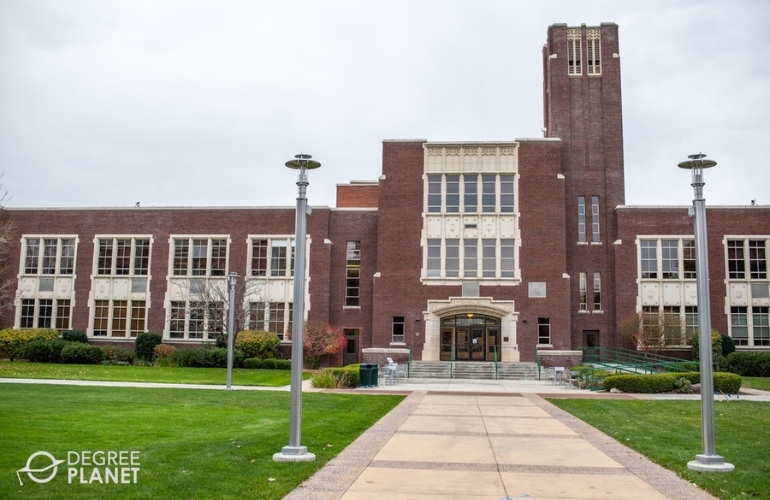
The quality of your education can make a big difference in whether you’re ready for a doctoral program. To set yourself up for receiving a solid education, it’s strategic to pick a regionally accredited college.
Editorial Listing ShortCode:
Regional accreditation is a respected distinction that can benefit you in several ways. For one thing, accredited studies will probably be a requirement for PharmD admission. Accreditation is also necessary if you plan to receive federal financial aid. Plus, regionally accredited classes are often transferrable between different schools.
Financial Aid and Scholarships

Financial aid resources might help you pay for the upfront costs that come with pharmacy training. The Free Application for Federal Student Aid (FAFSA) can help schools determine how much assistance you’re eligible to receive. You might qualify for grants and loans from the state and federal governments.
Scholarship opportunities may supplement your government assistance. Scholarship funds can be administered by your school or provided by an outside organization. You might also seek tuition help from your employer.
What Is PCAT?

Pharmacy College Admission Test (PCAT) is a standardized test that many students take before beginning PharmD programs. It’s designed to measure readiness for an advanced pharmacy program.
Students often take the PCAT as they are finishing up their undergraduate studies in pharmacy-related majors. That way, they have their scores before applying to doctoral programs. Currently, only some doctoral programs use this test as a factor in the PharmD admissions process. As a result, the PCAT will be retired in 2024.
What Can You Do with a Pre Pharmacy Bachelors Degree?
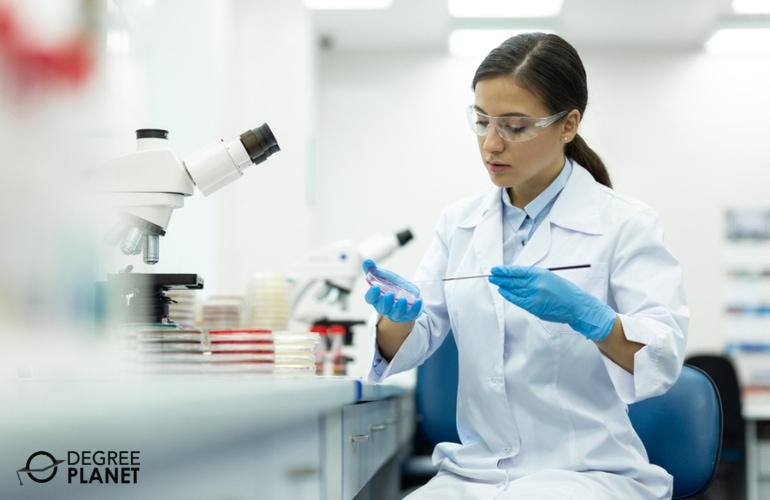
A pre-pharmacy bachelor’s degree can help prepare you to enter pharmacy school. In your classes, you can learn skills that you’ll use again and again while working toward your PharmD. A Doctor of Pharmacy (PharmD) degree could be useful for a career as a pharmacist, scientist, or research coordinator.
If you opt not to go to pharmacy school, you might be able to use your undergrad training in other ways. The Bureau of Labor Statistics says that a bachelors degree in a life science or a related field can help you qualify to work as a medical laboratory scientist. You could also consider working as a pharmacy technician, a healthcare journalist, or a pharmaceutical sales rep.
How Long Is a Pre Pharmacy Program Online?

Full-time students who enroll in pre pharmacy programs online tend to spend 2 to 4 years in school. The overall length will depend on what kind of program it is.
Pre-pharmacy tracks that don’t lead to full bachelor’s degrees usually take about 2 years. After that time, students advance into the PharmD program and complete their pharmacy studies. Bachelor’s degrees usually take 4 years to complete with full-time study. Some online programs with year-round classes can be finished more quickly.
Is a Pre Pharmacy Degree Worth It?

Yes, a pre pharmacy degree is worth it for many students. Enrolling in pre-pharmacy studies can provide valuable preparation for a doctoral pharmacy program. You’ll take science and healthcare courses that will lay the foundation for your future studies.
Editorial Listing ShortCode:
The Bureau of Labor Statistics projects 13% job growth for healthcare occupations over the next ten years. Pharmacists are essential members of the healthcare system, and they contribute to people’s healing and well-being. In particular, hospitals and clinics may hire more pharmacists over the next several years.
Universities Offering Online Pre-Pharmacy Degree Programs
Methodology: The following school list is in alphabetical order. To be included, a college or university must be regionally accredited and offer degree programs online or in a hybrid format.
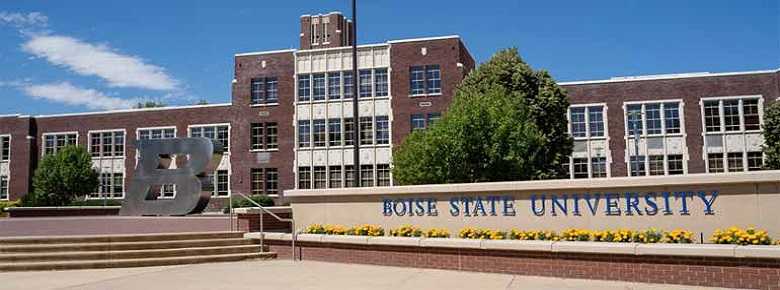
Boise State University offers a Bachelor of Science in Health Sciences. Students who are interested in pursuing further education in pharmacy sciences may select a concentration in Pre-Pharmacy Studies. Most students can complete the degree requirements in 4 years. Courses cover concepts like health policy, statistical reasoning, biochemistry, and health services administration.
Boise State University is accredited by the Northwest Commission on Colleges and Universities.
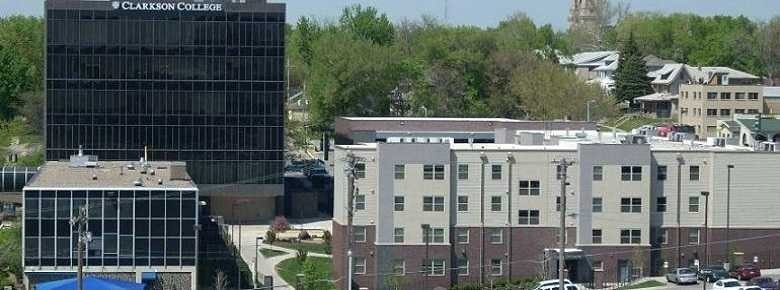
The Bachelor of Science in Community Health program at Clarkson College offers a specialization in Pre-Health Professions.
This program is intended for students who plan to apply to professional programs upon graduation. Additional concentrations like Pharmacy, Public Health, and Occupational Therapy are available to allow students to tailor the curriculum to their areas of interest. Students can attend classes full-time or part-time.
Clarkson College is accredited by the Higher Learning Commission.

The Bachelor of Science in Health Sciences program at Doane University offers a concentration in Pre-Health Professions. Students can select a pre-professional emphasis in Dental, Medical, Nursing, Optometry, Pharmacy, or Physician Assistant disciplines.Classes can be attended fully online or at one of two campuses. The program can typically be completed in 4 years of full-time study.
Doane University is accredited by the Higher Learning Commission.

Indiana Wesleyan University offers a Bachelor of Science in Health Sciences with a Pre-Clinical specialization. This program may be an excellent next step for those interested in advanced study to become healthcare practitioners. Upon completion of general education requirements, most students can complete their major coursework in 2 years. Classes are housed 100% online.
Indiana Wesleyan University is accredited by the Higher Learning Commission.
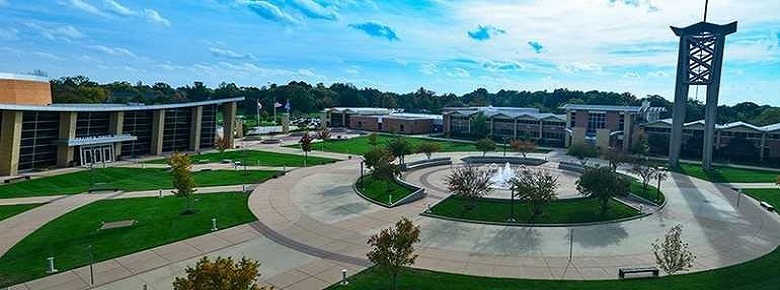
Logan University offers a Bachelor of Science in Human Biology. The program utilizes a convenient online learning format to accommodate students’ busy schedules. Students must complete a minimum of 122 credit hours to graduate. The curriculum covers foundational concepts like biochemistry, microbiology, anatomy and physiology, genetics, biostatistics, and immunology.
Logan University is accredited by the Higher Learning Commission.

The University of Arizona offers a Bachelor of Science in Biology. Students planning to pursue health provider professions may find an ideal fit in the program’s Biomedical emphasis. Classes meet primarily online, though students are required to complete two organic chemistry labs in-person. The program is designed to be completed in 4 years of full-time attendance.
The University of Arizona is accredited by the Higher Learning Commission.

The University of Central Florida offers a Bachelor of Science in Health Sciences. Students interested in becoming healthcare providers can select the Pre-Clinical concentration. The program requires the completion of a minimum of 120 credit hours. Potential courses include Human Anatomy and Physiology, Applied Health Research Methodology, Principles of Infectious Disease, and Pathogenic Microbiology.
The University of Central Florida is accredited by the Southern Association of Colleges and Schools Commission on Colleges.

The University of Florida offers a Bachelor of Science in Microbiology and Cell Science. This program is designed for students intending to continue their professional studies in medical school for biomedical research, pharmacy, dentistry, or veterinary science. Students can attend classes fully online or in-person. On average, students can complete the degree in 4 years.
The University of Florida is accredited by the Southern Association of Colleges and Schools Commission on Colleges.
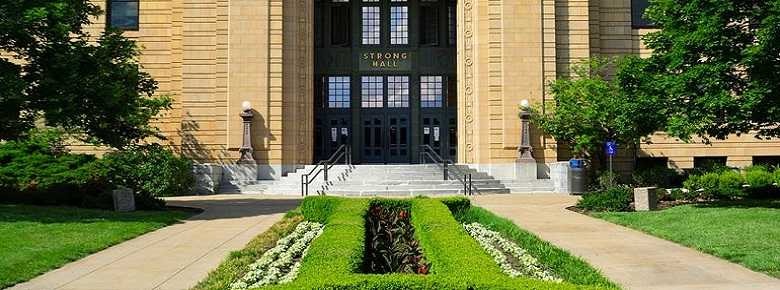
The University of Kansas offers a Bachelor of Health Sciences. Students pursuing advanced studies in disciplines like pharmacy, dentistry, or medicine may find an ideal next step in this program. This interdisciplinary curriculum aims to help students develop a strong foundation of knowledge and skills needed across health science roles. The program utilizes an online learning model.
The University of Kansas is accredited by the Higher Learning Commission.

The University of Memphis offers a Bachelor of Science in Health Sciences. This program is designed to prepare students for further studies in professions like dentistry, medicine, optometry, or pharmacy. In addition to convenient online coursework, students can also gain hands-on experience in the field through required clinical internships. Students must complete a minimum of 120 credits to graduate.
The University of Memphis is accredited by the Commission on Colleges of the Southern Association of Colleges and Schools.
Getting Your Pre-Pharmacy Degree Online

If you want to become a pharmacist, then you can start the process now with undergraduate pre-pharmacy studies. This field of study can also prepare you for other jobs in the pharmaceutical industry. For instance, some graduates go on to become lab assistants, drug reps, or pharmacy technicians.
Whatever your ultimate goal, you can start now by taking online classes from an accredited college. You may be able to learn about biology, healthcare, and research from the comfort of your home. Virtual or at-home labs could allow you to gain hands-on experience with classroom topics.
The sooner you start exploring pre pharmacy programs from accredited schools, the sooner you can begin your educational journey.

